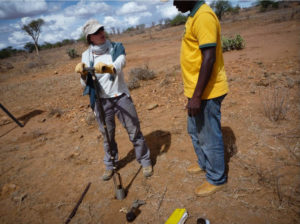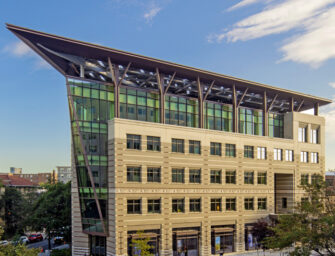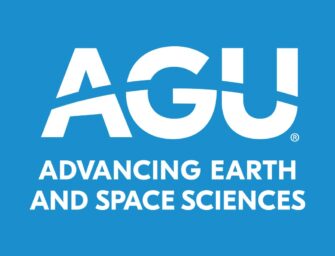AGU Joins Partnership to Build Greater Diversity and Inclusion in the Physical Sciences
I’m proud to announce that AGU is one of five scientific societies that have formed the Inclusive Graduate Education Network (IGEN), which will increase the participation of women and underrepresented racial and ethnic minorities in graduate studies in the physical sciences.
The percentages of women and underrepresented racial and ethnic minorities who pursue graduate education in the physical sciences is far less than those who complete undergraduate programs. There are various reasons for this trend, but AGU is committed to increasing the diversity of voices and experiences in the sciences to strengthen the research and discoveries that move progress forward for all of humanity. Collaboration on IGEN complements AGU’s efforts to foster an inclusive scientific environment, as the program aims to encourage a more diverse pool of students to pursue their doctorates through institutions that establish best practices for training a more representative, innovative, and competitive scientific workforce.

Photo courtesy of Cynthia Gerlein-Safdi
Funded by the National Science Foundation’s INCLUDES (Inclusion across the Nation of Communities of Learners of Underrepresented Discoverers in Engineering and Science) initiative, IGEN will encourage more robust participation in the science, technology, engineering, and math (STEM) fields by underrepresented groups over the next five years. The American Physical Society (APS) will lead the five-year, $10 million IGEN program, which also includes AGU, the American Chemical Society (ACS), the American Astronomical Society (AAS), and the Materials Research Society (MRS).
Key components in IGEN will build on APS’s Bridge Program, which has demonstrated effective ways to eliminate the participation gap between undergraduate and graduate students in physics. The partnership will look to apply lessons learned from the Bridge Program to not only physics, but other scientific disciplines in the Earth and space sciences. For example, IGEN will look to improve the mentoring of undergraduate students and to recruit larger numbers of students from underrepresented groups who otherwise may not consider pursuing STEM graduate degrees.
AGU will work to establish bridge sites at educational institutions to prepare underrepresented students for the transition from undergraduate to graduate education. The AGU Bridge program is designed to go beyond standard metrics and emphasize the full potential of the person represented by the graduate school application. We expect the program to kick off in 2019.
We look forward to working with APS, MRS, ACS, and AAS on cultivating and sustaining a diverse, inclusive, and dynamic talent pool in the Earth and space sciences. NSF’s strong support makes this work possible. By working together, we can create a welcoming environment in the Earth and space sciences for everyone.




We at the University of New Mexico would be interested in learning more about helping our diverse undergraduate population of Earth & Planetary Science majors more effectively bridge the gap to graduate school.
Hi Laura and thanks for the message!
Our partnership in the Inclusive Graduate Education Network (IGEN) is a result of the Board’s recent approval of the AGU Talent Pool Strategic Plan. Our goal for Talent Pool is: The AGU community cultivates and sustains a diverse, inclusive, and dynamic ESS talent pool. And our first objective under that goal is to “Increase the inclusion of underrepresented groups and individuals from those groups in the ESS talent pool.”
IGEN is one of our first steps forward in pursuit of a more equitable, inclusive and diverse Talent Pool for the Earth and space sciences. More will come later this year when the AGU Strategic Plan for Diversity and Inclusion comes before the Board for approval in December.
AGU will use 2019 to gear up for IGEN. We are currently looking for academic partners to accept women and minority applicants for geoscience graduate schools in late 2019 and early 2020. If you are the Head/Chair of a graduate department looking to diversify your student body, please contact Pranoti Asher ([email protected]) or David Harwell ([email protected]).
Yours in Diversity,
Dave
——————————
David Harwell, Ph.D.
Director, Talent Pool
American Geophysical Union
——————————
I’m curious if you will include other groups for which research has identified them as marginalized in academia, such faculty and students from lower income families? Thanks.